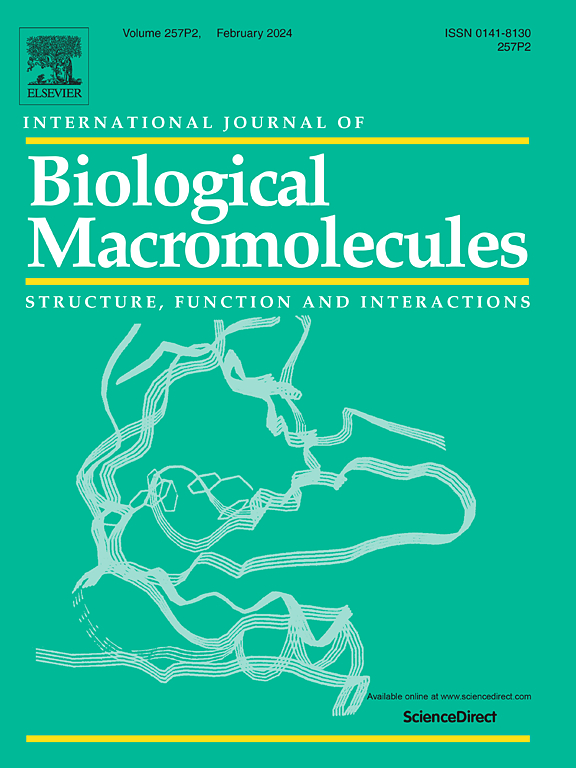阐明单克隆抗体疗法中 Mg2+ 诱导的大小和电荷异质性。
IF 7.7
1区 化学
Q1 BIOCHEMISTRY & MOLECULAR BIOLOGY
International Journal of Biological Macromolecules
Pub Date : 2024-11-17
DOI:10.1016/j.ijbiomac.2024.137736
引用次数: 0
摘要
众所周知,电荷变异曲线的变化会影响 mAb 的稳定性,反之亦然。本报告阐明了金属镁(0.5 mM Mg2+)对曲妥珠单抗(IgG1 抗体)的影响。Mg2+ 常被用作生物制药配方中的赋形剂(50-100 mM)和润滑剂(5-10 % w/w)。本研究采用分析型尺寸排阻色谱法(SEC)和阳离子交换色谱法(CEX)结合质谱法(MS)来评估热应激和金属应激样品中的尺寸和电荷异质性,并与对照样品(室温)进行比较。本研究发现,与热应力(约 2%)或对照样品(2+ 和热应力)相比,Mg2+ 的存在大大增加了聚集率,在 Mg2+ 应力样品中观察到的聚集率为 9%。施加应力还导致形成了 17 种额外的化学修饰(7 种由热应力引起,10 种由 Mg2+ 应力引起),这些化学修饰在对照样品中没有发现,主要涉及脱氨基、天冬氨酸异构化、氧化和琥珀酰亚胺修饰。结果表明,有必要对生物治疗配方中金属存在的影响进行详细分析。本文章由计算机程序翻译,如有差异,请以英文原文为准。
Elucidation of Mg2+ induced size and charge heterogeneity in monoclonal antibody therapeutics
Changes in charge variant profile are known to affect mAb stability and vice versa. This report elucidates the effects of magnesium metal (0.5 mM Mg2+) on trastuzumab (IgG1 antibody). Mg2+ is often used as an excipient (50–100 mM) and lubricant (5–10 % w/w) in biopharmaceutical formulations. Analytical size-exclusion chromatography (SEC) and cation-exchange chromatography (CEX) coupled with mass spectrometry (MS) were used to evaluate the size and charge heterogeneity in the thermal and metal stressed samples and compared to the control sample (room temperature). The present study unveils that presence of Mg2+ significantly increases the rate of aggregation with 9 % aggregation observed in Mg2+ stressed samples as compared to that from thermal stress (~2 %) or control sample (<1 %). Similarly, a 2-fold elevation in acidic variants was observed both in presence of Mg2+ and thermal stress, when contrasted with the control sample. Application of stress also led to the formation of 17 additional chemical modifications (7 due to thermal stress and 10 due to Mg2+ stress) which were not identified in control, predominantly involving deamidation, isomerization of aspartic acid, oxidation, and succinimide modifications. The results indicate the need for a detailed analysis of the impact of presence of metals in biotherapeutic formulations.
求助全文
通过发布文献求助,成功后即可免费获取论文全文。
去求助
来源期刊
CiteScore
13.70
自引率
9.80%
发文量
2728
审稿时长
64 days
期刊介绍:
The International Journal of Biological Macromolecules is a well-established international journal dedicated to research on the chemical and biological aspects of natural macromolecules. Focusing on proteins, macromolecular carbohydrates, glycoproteins, proteoglycans, lignins, biological poly-acids, and nucleic acids, the journal presents the latest findings in molecular structure, properties, biological activities, interactions, modifications, and functional properties. Papers must offer new and novel insights, encompassing related model systems, structural conformational studies, theoretical developments, and analytical techniques. Each paper is required to primarily focus on at least one named biological macromolecule, reflected in the title, abstract, and text.

 求助内容:
求助内容: 应助结果提醒方式:
应助结果提醒方式:


